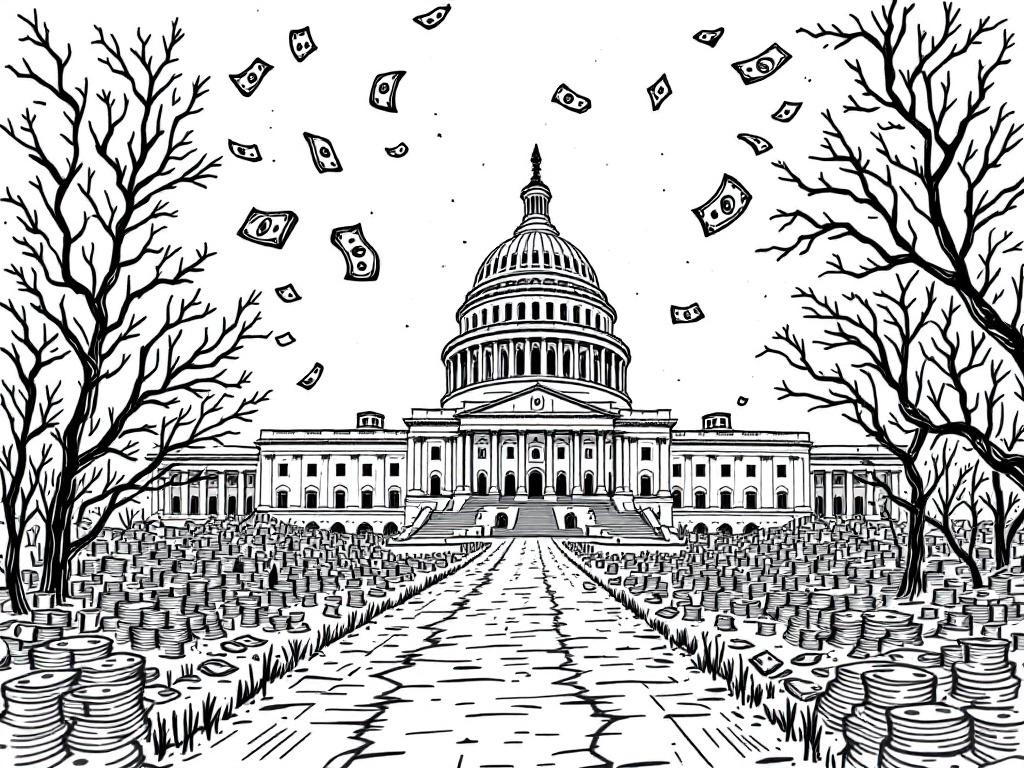Senate Republicans Push Forward $4.5 Trillion Trump Tax Bill

Washington, D.C., Sunday, 29 June 2025.
Senate Republicans secured a narrow 51-49 vote to advance Trump’s tax and spending package, addressing a looming July Fourth deadline amidst criticism over Medicaid cuts and debt increase concerns.
Backdrop of the Legislation
The Senate Republicans, with a narrow vote of 51-49, have advanced President Donald Trump’s $4.5 trillion tax cut package known as the ‘One Big Beautiful Bill Act.’ This procedural win is pivotal for the administration, aiming to push this expansive legislative package through before the self-imposed deadline of July Fourth, 2025 [1][2]. The vote, a reflection of intense bipartisan negotiations and internal party disagreements, also witnessed two Republicans breaking ranks to oppose the advancement, aligning with all Democrats [1]. Vice President J.D. Vance was present to cast a tie-breaking vote if necessary [3].
Key Provisions and Financial Implications
The bill seeks to permanently extend many of Trump’s initial term tax cuts and introduce new tax incentives, such as eliminating taxes on tips, with continued emphasis on anti-immigration measures by allocating $350 billion to national security and border enforcement efforts [1][4]. However, the fiscal projections associated with the bill have raised alarms; the nonpartisan Congressional Budget Office estimates suggest this legislation could significantly amplify national debt and reduce the number of insured individuals by approximately 11.8 million by 2034 [5].
Rifts and Criticisms Within the Ranks
Internal divisions within the Republican Party have become particularly evident, primarily over the proposed Medicaid cuts, which are anticipated to be severe. Notable Republicans, including Senator Thom Tillis from North Carolina, lambasted these measures, leading to friction with President Trump, who threatened to back challengers against dissenting GOP senators in the upcoming elections [1][6]. Such maneuverings underscore Trump’s firm stance on his legislative priorities, amidst warnings from economic experts about potential negative impacts on federal Medicaid assistance [7].
Political and Economic Repercussions
The advancement of this bill, despite being a victory for Trump’s administration and Senate Majority Leader John Thune, encapsulates the ongoing partisan tussles and economic strategizing within U.S. political spheres [3]. Critics, including environmental advocates like Elon Musk, challenge the rollback of clean energy incentives amidst such extensive fiscal commitments, arguing that these tax cuts disproportionately favor high-income individuals while potentially stalling sustainable energy advancements [1][4]. As the nation inches towards the July Fourth deadline, an intricate dance of negotiations continues, potentially reshaping economic policies significantly [8].
Sources
- apnews.com
- www.bloomberg.com
- www.politico.com
- www.cbsnews.com
- www.npr.org
- www.bloomberg.com
- www.pbs.org
- www.nytimes.com